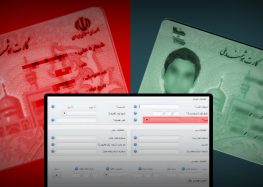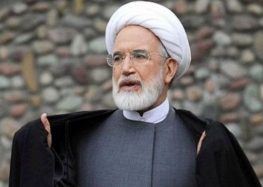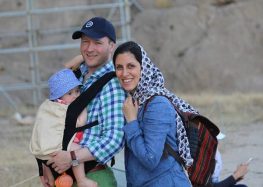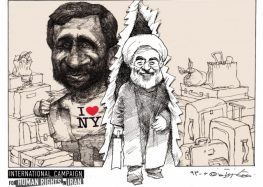Ministry of Foreign Affairs
 Non-cooperation with the United Nations
Non-cooperation with the United Nations
Non-cooperation with international human rights organizations
Protecting the rights of Iranians with dual nationalities
Recommendations
Non-cooperation with the United Nations
The Ministry of Foreign Affairs represents the Islamic Republic of Iran at the UN General Assembly and the Human Rights Council (HRC) as well as at other UN human rights bodies. For the past eight years, the Ministry of Foreign Affairs has failed to establish any meaningful cooperation with these UN mechanisms.
In 2011, the UN HRC appointed a Special Rapporteur on the situation of human rights in the Islamic Republic of Iran. Rather than responding to the numerous rights violations that the Special Rapporteur, Ahmed Shaheed, has documented in his four reports, Iran’s Ministry of Foreign Affairs has categorically denied any human rights violations. Furthermore, the Ministry has repeatedly denied an entry visa to the Special Rapporteur and has refused to cooperate with his office or allow him or any of his representatives to enter the country.
On February 15, 2010, the Islamic Republic of Iran underwent its first HRC Universal Periodic Review (UPR). Delegations at the HRC made a total of 188 recommendations. Iran fully accepted 123 recommendations, partially accepted 3, rejected 46, and took note of the remaining 16. The importance of the UPR, as a central mechanism of the HRC, is that it applies to all member states and is the UN human rights mechanism that Iranian authorities often describe as most legitimate.
Nonetheless, Iran has done essentially nothing to implement any of the 126 recommendations it accepted during the UPR. In addition, since 2005, the government of Iran has not allowed any thematic UN mandate-holders to visit the country, despite repeated requests by the UN.
Moreover, the government of Iran has repeatedly ignored recommendations by the UN Secretary General issued in his annual reports on the situation of human rights in Iran, as well as annual UN General Assembly resolutions on the situation of human rights in Iran.
The Ministry of Foreign Affairs has also failed to respond to the majority of communications by the UN Special Procedures regarding specific individual human rights cases.
Non-cooperation with international human rights organizations
The Ministry of Foreign Affairs has also consistently failed to respond to communications by international human rights organizations or honor their requests for meetings or for visits to the country for the purposes of research. Iran, along with North Korea and Turkmenistan, is one of the very few “closed” countries that, for the past 35 years, have not allowed visits by any international human rights organization.
Protecting the rights of Iranians with dual nationalities
Iran routinely detains, under highly questionable circumstances, Iranians with dual citizenship who have traveled to the country. In dozens of recent cases in which Iranians with dual nationality have been arrested or imprisoned in Iran, the Ministry of Foreign Affairs has not cooperated with the families of the accused nor with their other country of nationality. The government does not provide information regarding these individuals’ circumstances or the status of their case, and, in the vast majority of these cases, the family members of these detainees are not provided any information regarding the reasons for their detention or the conditions of the detainees. Iranian officials also ignore inquiries by the home governments of these detainees. For example, imprisoned Iranian-American Amir Hekmati’s family learned of his status through the media, rather than directly from Iranian officials.
Recommendations for the Ministry of Foreign Affairs:
- Allow immediate access to Dr. Ahmed Shaheed, the UN Special Rapporteur on the situation of human rights in Iran, and fully cooperate with his mandate.
- Take concrete steps to implement the recommendations from the 2010 Universal Periodic Review, Special Rapporteurs’ reports, Secretary General’s reports, and General Assembly resolutions.
- Respond credibly to communications by the UN Special Procedures.
- Allow visits to Iran by international human rights organizations, allow Iranian diplomats to meet with their representatives, and make sure the recommendations and concerns of these organizations are communicated to the appropriate Iranian officials.
- Communicate responsibly with the families and home governments of detainees with dual nationalities, and provide any information needed in order to follow up with their cases and ensure their right to due process.






